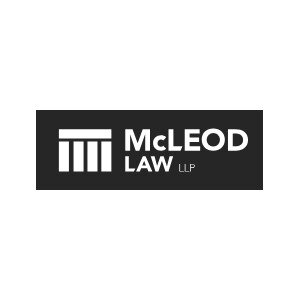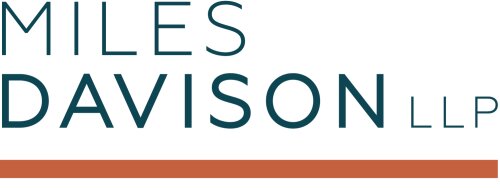Best Bankruptcy & Debt Lawyers in Calgary
Share your needs with us, get contacted by law firms.
Free. Takes 2 min.
List of the best lawyers in Calgary, Canada
Canada Bankruptcy & Debt Legal Articles
Browse our 1 legal article about Bankruptcy & Debt in Canada written by expert lawyers.
- Canada Debt Collectors Guide: Stop Harassment and Verify
- You have strong, province-specific rights that limit when and how collectors can contact you, require them to prove the debt in writing, and allow you to demand they stop contacting you except for legal notices. Do not pay or admit you owe the debt until you receive written verification that... Read more →
About Bankruptcy & Debt Law in Calgary, Canada
Bankruptcy & Debt law in Calgary, Canada, deals with the legal framework surrounding individuals and businesses facing financial challenges. It provides a structured process for individuals to eliminate or repay their debts, while offering protection to ensure a fair resolution for both debtors and creditors. If you find yourself overwhelmed by debt and unable to meet your financial obligations, it may be helpful to understand the laws and options available to you.
Why You May Need a Lawyer
While it is not mandatory to have legal representation in bankruptcy and debt cases, hiring a lawyer can ensure that your rights are protected and that you navigate the complex legal system effectively. Some common situations where it is advisable to seek legal help include:
- If you are unsure whether bankruptcy is the right option for your situation
- If you have significant assets or complex financial affairs
- If you are facing legal action from creditors
- If you need guidance on debt negotiation or repayment plans
- If you are dealing with harassment from debt collectors
Local Laws Overview
The Bankruptcy and Insolvency Act is the federal legislation that governs bankruptcy and debt matters in Canada. However, there are also specific local laws and regulations that are particularly relevant in Calgary, Canada. Some key aspects of these local laws include:
- The Calgary Court of Queen's Bench handles bankruptcy and insolvency matters in the region
- Alberta exemptions determine which assets are protected from seizure during bankruptcy
- Calgary has specific rules regarding credit counseling and debt repayment programs
Frequently Asked Questions
1. Can bankruptcy eliminate all my debts?
No, not all debts can be eliminated through bankruptcy. Certain types of debts, such as student loans (in most cases) and certain tax obligations, may not be discharged in bankruptcy. However, bankruptcy can still provide relief by eliminating or reducing many other debts.
2. Will bankruptcy ruin my credit forever?
Bankruptcy will have a negative impact on your credit score and stay on your credit report for a number of years. However, it is possible to rebuild your credit over time. With responsible financial management, it is possible to gradually improve your creditworthiness even after bankruptcy.
3. Can I keep any assets if I file for bankruptcy?
While bankruptcy requires surrendering some of your assets, Canadian bankruptcy laws provide certain exemptions that allow you to keep essential items necessary for daily living. The specific exemptions vary by province and may include items such as clothing, furniture, and a modest vehicle.
4. What alternatives are there to filing for bankruptcy?
There are alternatives to bankruptcy that you may consider, depending on your situation. Debt consolidation, debt negotiation, or debt repayment plans are some potential options. Consult with a bankruptcy lawyer or credit counselor to find the best solution for your circumstances.
5. Can I file for bankruptcy without a lawyer?
It is possible to file for bankruptcy without a lawyer, but it is generally recommended to seek legal assistance. A bankruptcy lawyer can guide you through the process, help you understand your rights, and ensure that all necessary paperwork and documentation are properly filed.
Additional Resources
For further information and assistance regarding bankruptcy and debt matters in Calgary, Canada, you may find the following resources helpful:
- The Office of the Superintendent of Bankruptcy Canada (https://www.ic.gc.ca) - Provides information on insolvency, bankruptcy laws, and licensed trustees in Canada.
- Calgary Legal Guidance (https://clg.ab.ca) - Offers free legal information, advice, and referrals to individuals in need, including bankruptcy and debt-related matters.
- Government of Alberta - Justice and Solicitor General (https://www.alberta.ca/justice-and-solicitor-general.aspx) - Provides information on legal services and resources available in Alberta, including bankruptcy and debt-related assistance.
Next Steps
If you are facing overwhelming debt and require legal assistance in bankruptcy and debt matters in Calgary, Canada, the next steps you should consider are:
- Consult with a bankruptcy lawyer to assess your situation and explore available options.
- Gather and organize all relevant financial documents, including debts, assets, and income information.
- Work with your lawyer to develop a plan tailored to your circumstances, which may involve filing for bankruptcy or exploring alternatives.
- Follow the guidance of your lawyer to complete necessary paperwork and fulfill your obligations throughout the bankruptcy or debt resolution process.
- Consider reaching out to credit counseling agencies or financial advisors for additional support in rebuilding your financial health.
Lawzana helps you find the best lawyers and law firms in Calgary through a curated and pre-screened list of qualified legal professionals. Our platform offers rankings and detailed profiles of attorneys and law firms, allowing you to compare based on practice areas, including Bankruptcy & Debt, experience, and client feedback.
Each profile includes a description of the firm's areas of practice, client reviews, team members and partners, year of establishment, spoken languages, office locations, contact information, social media presence, and any published articles or resources. Most firms on our platform speak English and are experienced in both local and international legal matters.
Get a quote from top-rated law firms in Calgary, Canada — quickly, securely, and without unnecessary hassle.
Disclaimer:
The information provided on this page is for general informational purposes only and does not constitute legal advice. While we strive to ensure the accuracy and relevance of the content, legal information may change over time, and interpretations of the law can vary. You should always consult with a qualified legal professional for advice specific to your situation.
We disclaim all liability for actions taken or not taken based on the content of this page. If you believe any information is incorrect or outdated, please contact us, and we will review and update it where appropriate.
Browse bankruptcy & debt law firms by service in Calgary, Canada
Calgary, Canada Attorneys in related practice areas.











